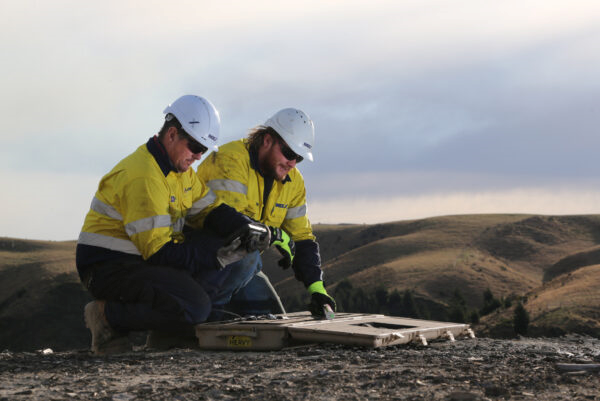IMDEX urges reprocessing mine wastes to help meet critical minerals demand


Recovering and re-mining mine waste is a credible and potentially financially alluring prospect as the mineral intensity of the clean energy transition requires new solutions to avoiding supply shortfalls.
The World Bank estimates that more than 3.0 billion tonnes of minerals and metals will be needed for the wind, solar, geothermal power and energy storage requirements of projects to be built to meet carbon reduction targets.
The Minerals Research Institute of Western Australia says the value of precious, critical, and strategic metals contained in tailings worldwide is estimated to exceed US$3.4 trillion.
Dave Lawie, chief geoscientist with global mining-tech company IMDEX, says technology has a role to play in characterising the tailings and defining the ore to enable extraction. He said as well as re-assessing tailings, there has also been a shift in sentiment, particularly in Europe, in support of bringing old mines back into production.
“You could probably bring these mines back with much less local community and environmental impact and much better ESG credentials,” Lawie said. “There seems to be a realization now that we do need these metals and it seems to be becoming more acceptable now to try to restart this activity in Europe.
“To do something with the tailings you need to understand what is in the tailings, some of which have been in place for 100 years and there's no record of what is in them. But if you want to make a case to re-open them in some way it's very difficult to make an economic case unless you know what’s in them, and that’s the role of technology.”
The Australian government has released an Atlas of Australian Mine Waste, in collaboration with Geoscience Australia, RMIT University, and the University if Queensland. So far, the Atlas had identified 1,050 sites across Australia as possible sources of critical minerals.
Lawie said re-processing offered value by recovering valuable material in tailings left behind by past inefficient mining practices, finding new uses for the tailings, and by creating value from an asset that would otherwise be carried as a liability by mining companies.
“Some of the older processing plants and processes weren't that efficient compared to today’s technology and the recovery might have been 70 per cent to 80 per cent which means 2% or 3 of the valuable material is still sitting in the tailings," he said.
“Another value is in the material itself. There is research being done because material that has been through processing and are in tailings is special material. “Groups such as Regeneration are involved in research to determine what you can turn tailings into. and they’re developing projects focused on remining and restoring legacy mines.”
He continued, “If we put our minds to it, we'd probably be able to transform them into specialised building materials; they’ll have certain thermal capacities, we might be able to make insulation panels, or bricks that are resilient to losing heat in houses.
“Then there is putting a dollar value on the liability mining companies carry for the tailings. Re-processing the tailings means you can potentially turn it into something valuable, and there are environmental credits for remediating these areas.”
IMDEX is a leading global mining technology company, which enables successful and cost-effective operations from exploration to production. The company develops cloud-connected sensors and drilling optimization products to improve the process of identifying and extracting mineral resources for drilling contractors and resource companies globally.
Visit www.ImdexLimited.com.
Comments